Asus ROG Swift PG32UQX monitor review: our Mini LED future is here
The Asus ROG Swift PG32UQX is stunning (and stunningly expensive) 4K Mini LED monitor – and we love it
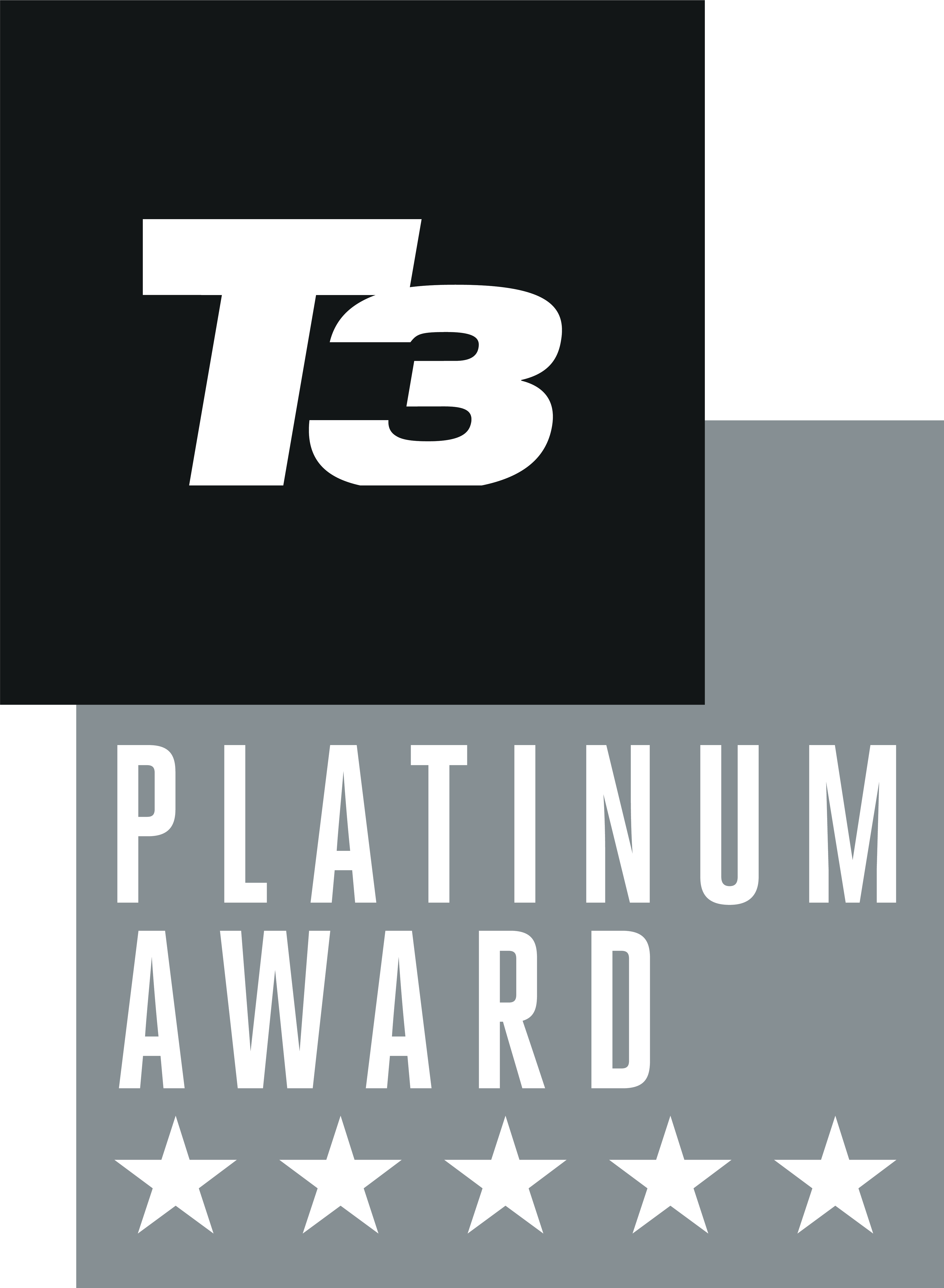
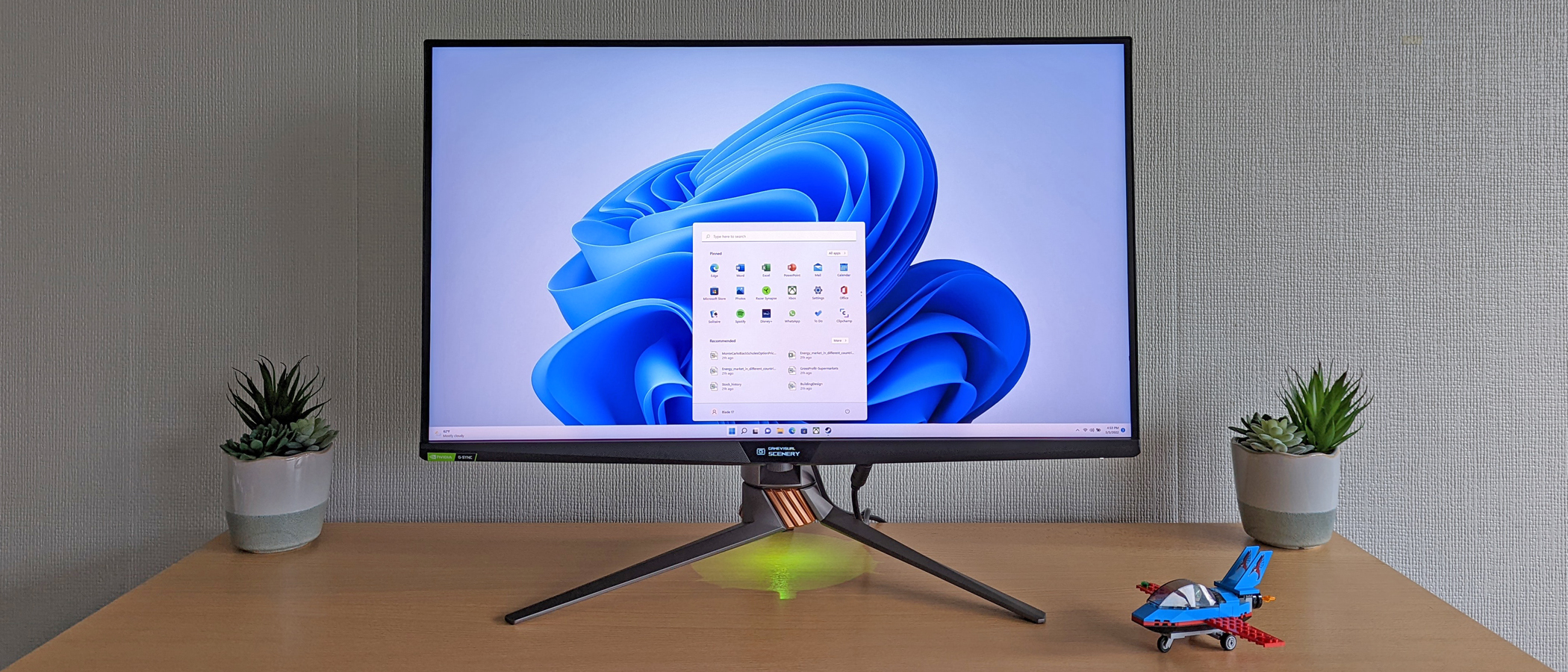
The Asus ROG Swift PG32UQX is expensive, sure – but it brings with it superb performance, a list of specs and features to drool over, a great design with some bold choices, and the Mini LED technology that might well be the future of gaming monitors like this. We love it.
-
+
Mini LED tech really shines (literally)
-
+
Really striking design features
-
+
Position can be customised
-
-
Relatively bulky and heavy
-
-
It's going to cost you a lot
-
-
No integrated speakers
Why you can trust T3

The Asus ROG Swift PG32UQX is clearly one of the best 4K monitors on the market right now, at least in terms of what it offers on paper – and in this review we'll reveal whether the monitor lives up to the promise of its specs and Asus branding.
What makes this panel really stand out is that it's one of the first gaming monitors on the market to offer the premium quality Mini LED technology, the same display upgrade that we've seen making its way into television sets and the most recent iPad Pro models, which is ideal for precision backlighting and optimum brightness delivery.
That makes it worth standing up and taking notice – but it also pushes up the price quite considerably. So is it worth it?
- Best gaming chairs 2025: the top PC gaming chairs we've tested
- Best gaming mouse 2025: top budget and premium mice rated
Asus ROG Swift PG32UQX: Price and availability
You might want to sit yourself down for this one: the Swift PG32UQX costs a little over £3,000 in the UK, while in the US it's available for a little under $3,000. That's enough money for a top-tier gaming PC. In the UK, you can pick up the monitor from retailers including Amazon and Scan.
Asus ROG Swift PG32UQX: Design and setup
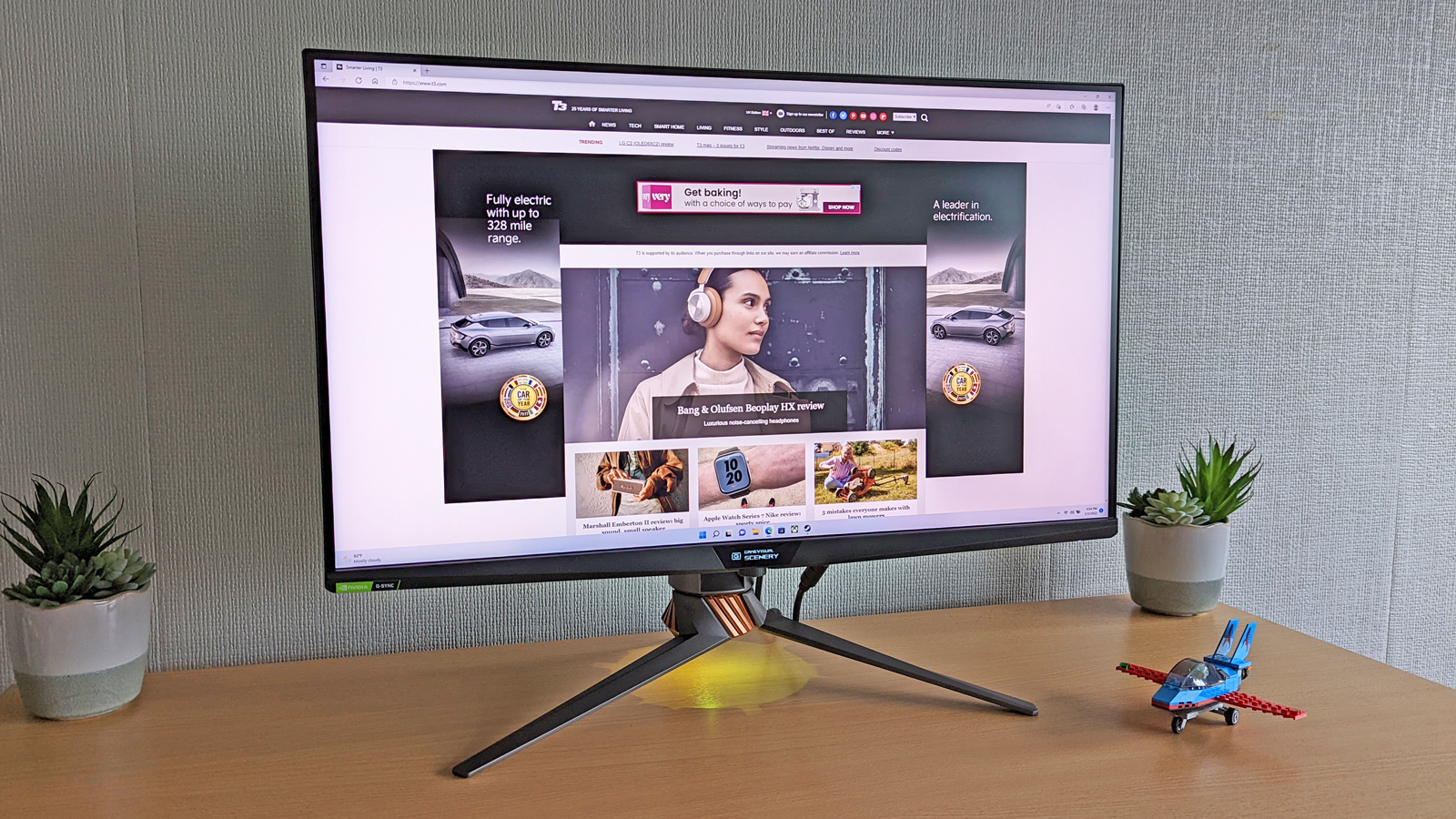
The Asus ROG Swift PG32UQX is a bit of a beast of a monitor, and unless you're reasonably big and strong you might need a hand with getting it set up. Aside from the size and the weight, assembling the monitor isn't difficult at all: you slide the monitor and its connected stand into the base, use your finger and thumb to fasten the screw, and you're all set.
The overall dimensions of the monitor when it's assembled are 727 mm x 574 mm x 306 mm (28.6 inches x 22.6 inches x 12 inches). As you can tell from those dimensions, thin and light this is not, plus it tips the scales at 10.9kg (24lbs). If you go for the 34-inch version, the weight and size goes up even further of course.
It's quite bold in some of its design choices, and we're including both the mirrored Asus ROG logo on the back of the monitor and the (customisable) lighting underneath the stylish stand. Creative touches abound here, including the dial underneath the monitor for controlling the basic on-screen menus, and the little LED display down in the bottom bezel – you can display information like picture mode and refresh rate here, and it's all customisable via the menus on screen. There's even a tripod socket and a USB-A port on the top to cover your livestreaming needs.
As for other ports, you're well covered here too, with a 3.5 mm headphone jack, three HDMI 2.0 ports, and a single DisplayPort 1.4 socket for connecting up your gadgets. There's 70mm (2.8in) of height adjustment, 25 degrees of tilt, and 40 degrees of swivel available too, although you can't rotate the monitor and use it in portrait mode. Overall, there's no getting around the bulk, but it's pleasing enough aesthetically.
- Our guide to the best monitors for the Mac mini
Asus ROG Swift PG32UQX: Features and picture quality
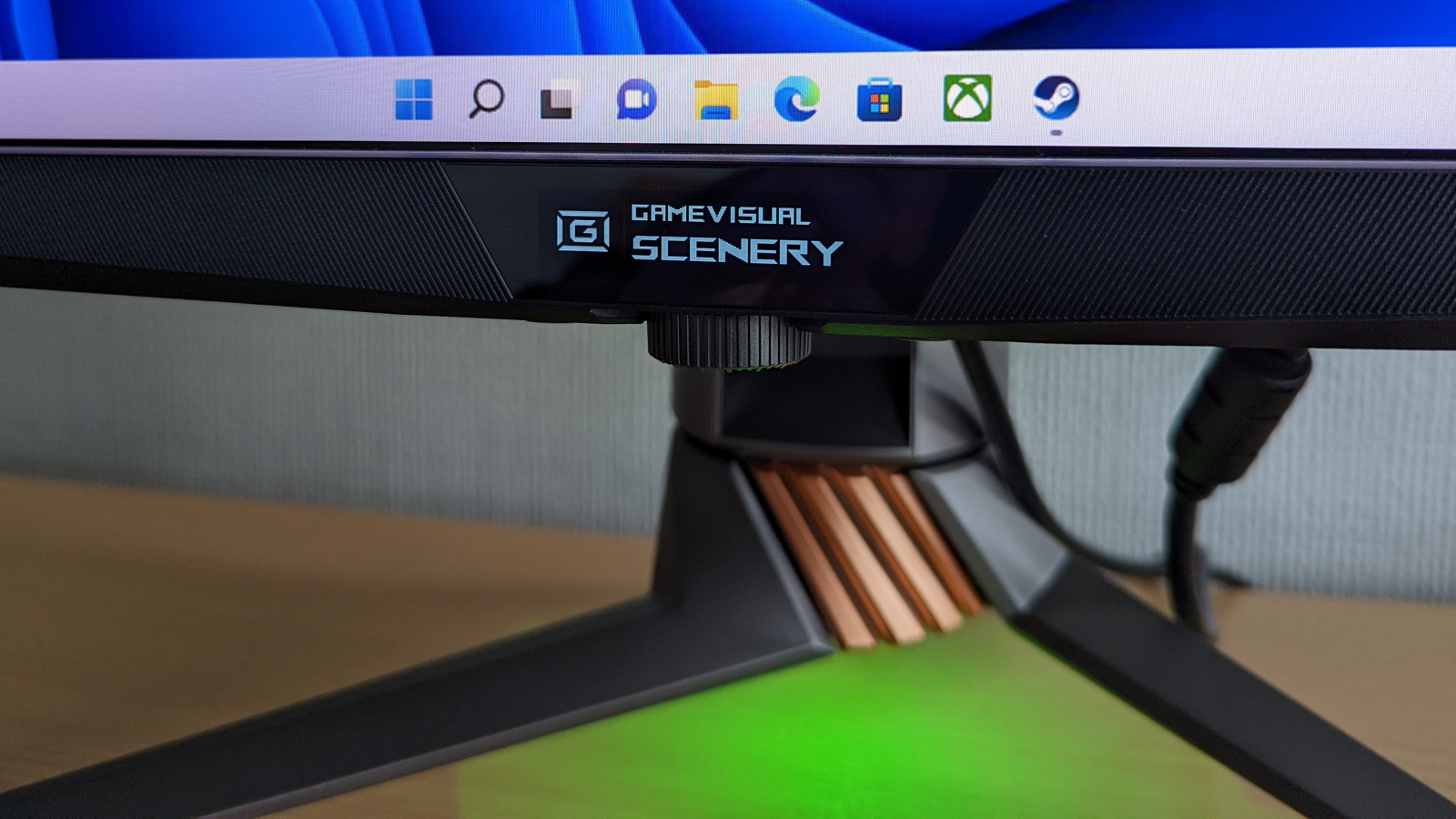
Without diving too deeply into the tale of Mini LED, it essentially takes the basics of LED-backlit LCD IPS displays and improves on that by making the LEDs even smaller – hence the Mini LED name. Smaller backlights mean more precision and lighting that's more uniform across the whole display. Here there's support for full-array local dimming (FALD), which means there are 1,152 different dimming zones across the screen for top-end precision.
Besides the Mini LED aspect, there's plenty to impress here: a 4K (3,840 x 2,160 pixel) native resolution, a 144Hz refresh rate, a maximum brightness of 500 nits, 98 percent coverage of the DCI-P3 colour gamut, true 10-bit colour depth, and support for Nvidia G-Sync Ultimate and VESA DisplayHDR 1400. You're going to have to work hard to better or even match that on the gaming market at the moment.
The horizontal and vertical viewing angles of 178 degrees mean the action stays visible even if you're moving around the room. The only spec that isn't quite cutting edge is the 4ms grey-to-grey response time – that's still very good of course, and games look great on this panel, but it could be bettered.
Most importantly though, how does it all look? Well, just fantastic: objects on screen are rich, vivid and sharp, and the Mini LED technology lives up to the hype in this case. Fast-moving scenes and tiny details are no problem for the Swift PG32UQX, and we don't think we've ever seen the Wild West vistas of Red Dead Redemption 2 ever look so good. We didn't notice any blurring or ghosting in our testing, and it's just as capable with movies as it is with games.
However, there are no integrated speakers, but you do get two USB Type-A 3.1 ports for connecting up peripherals. A minor negative, but not an unexpected one at this level.
- We've picked the best monitors for MacBook Pros
Asus ROG Swift PG32UQX review: verdict
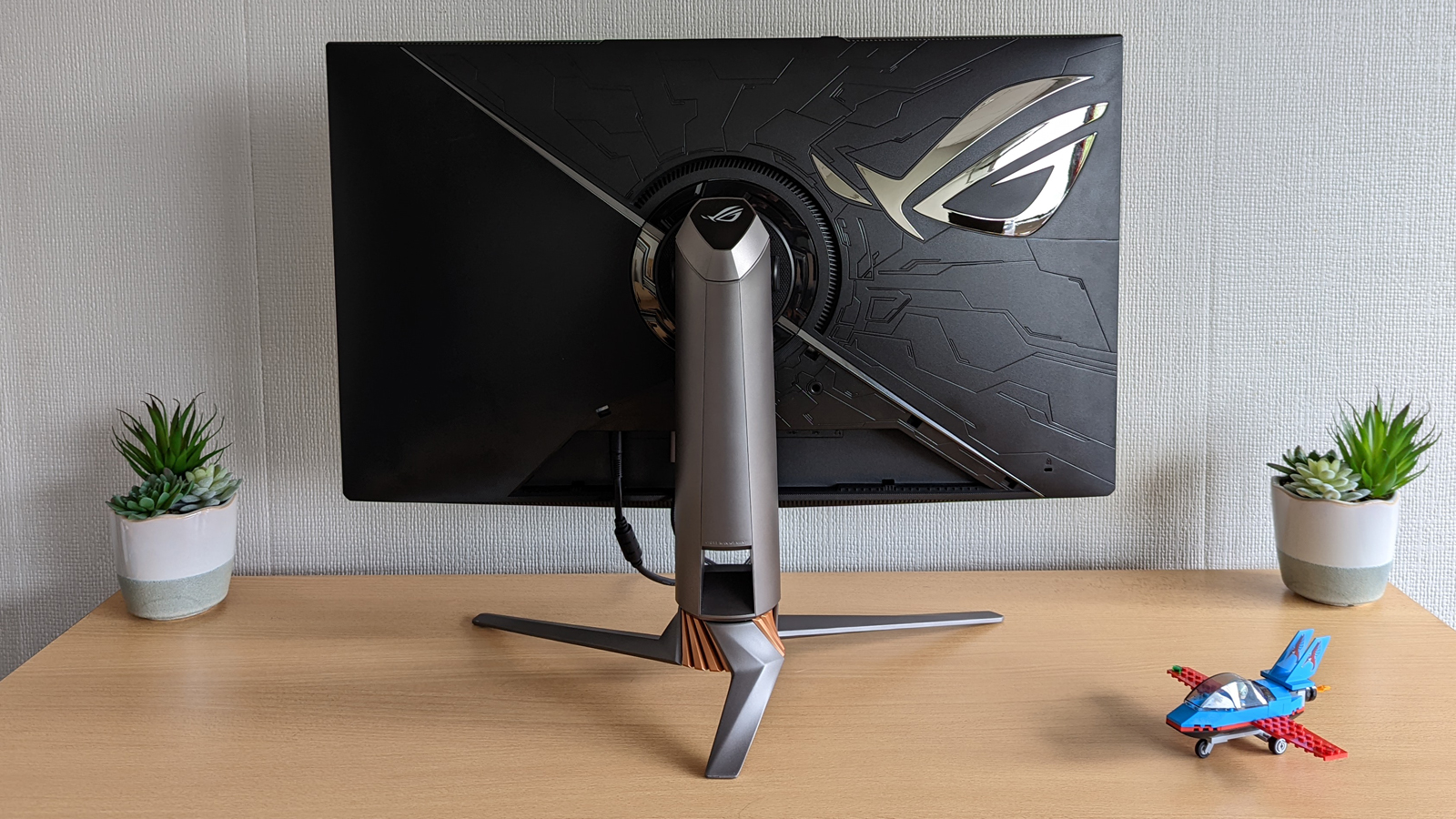
We get through a lot of monitor reviews here at T3, and every gadget and device has to be weighed up against its price: are you getting enough back in return for what you're spending? Considering the high price of the Asus ROG Swift PG32UQX, we think that it's a close call in this case, as you could spend substantially less without losing too much in the way of quality with the way your games and other apps are displayed.
That said, there's no doubt this is an outstanding monitor, not just in terms of reading the specs on offer, but in actually experiencing the screen. It just looks superb. The Mini LED technology makes a difference, with very little in the way of halo effects where illuminated pixels bleed colour into the black ones around them – sit in front of this panel while you're gaming and you wan't help but drool over it.
That advanced display technology does really allow high dynamic range (HDR) to shine, with details remaining visible in both the darkest and lightest areas of the picture, and colours well balanced throughout. Add in the build quality and the eye-catching design and you start to think that maybe a four-figure asking price is reasonable for such an impressive bit of kit.
If you've got the budget for the Asus ROG Swift PG32UQX, then we're sure you're going to love it – it excels in every area and, to go back to what we said at the start, it's just as good in real life as you think it might be when you look at the specs list.
- Check up on the best portable monitors
Asus ROG Swift PG32UQX: Also consider
There aren't many monitors that can match what the Asus ROG Swift PG32UQX offers, Mini LED and all, but there are certainly a lot of cheaper alternatives that still impress when it comes to PC gaming. For example, the MSI MPG Artymis 343CQR lowers the refresh rate but ups the response time and offers a higher maximum brightness – it's also an ultrawide, curved monitor if that's something that you're looking for.
You could also go small and go budget with the rather excellent BenQ Mobiuz EX2710: it matches the 144Hz refresh rate of the Asus monitor we've looked at in this review, and it offers a very appealing 1 ms refresh time too. However, you won't get the 4K resolution, the screen size drops down to 27 inches, and of course you don't get any of that lovely Mini LED technology either.
T3 tests a wide range of products, from kayaks to kick scooters, mattresses to laptops, but the one thing that links them all is our approach to testing. Here's T3's How We Test page, so you know you're getting the real deal – actual time spent with testing products in the real world, not make-believe reviews based on spec sheets and assumption.
- Next you can pick up one of the best laptops
Sign up to the T3 newsletter for smarter living straight to your inbox
Get all the latest news, reviews, deals and buying guides on gorgeous tech, home and active products from the T3 experts
Dave has over 20 years' experience in the tech journalism industry, covering hardware and software across mobile, computing, smart home, home entertainment, wearables, gaming and the web – you can find his writing online, in print, and even in the occasional scientific paper, across major tech titles like T3, TechRadar, Gizmodo and Wired. Outside of work, he enjoys long walks in the countryside, skiing down mountains, watching football matches (as long as his team is winning) and keeping up with the latest movies.
-
 YETI just made bowls cool – literally. And also figuratively.
YETI just made bowls cool – literally. And also figuratively.New YETI design, same bear-proof energy
By Matt Kollat Published
-
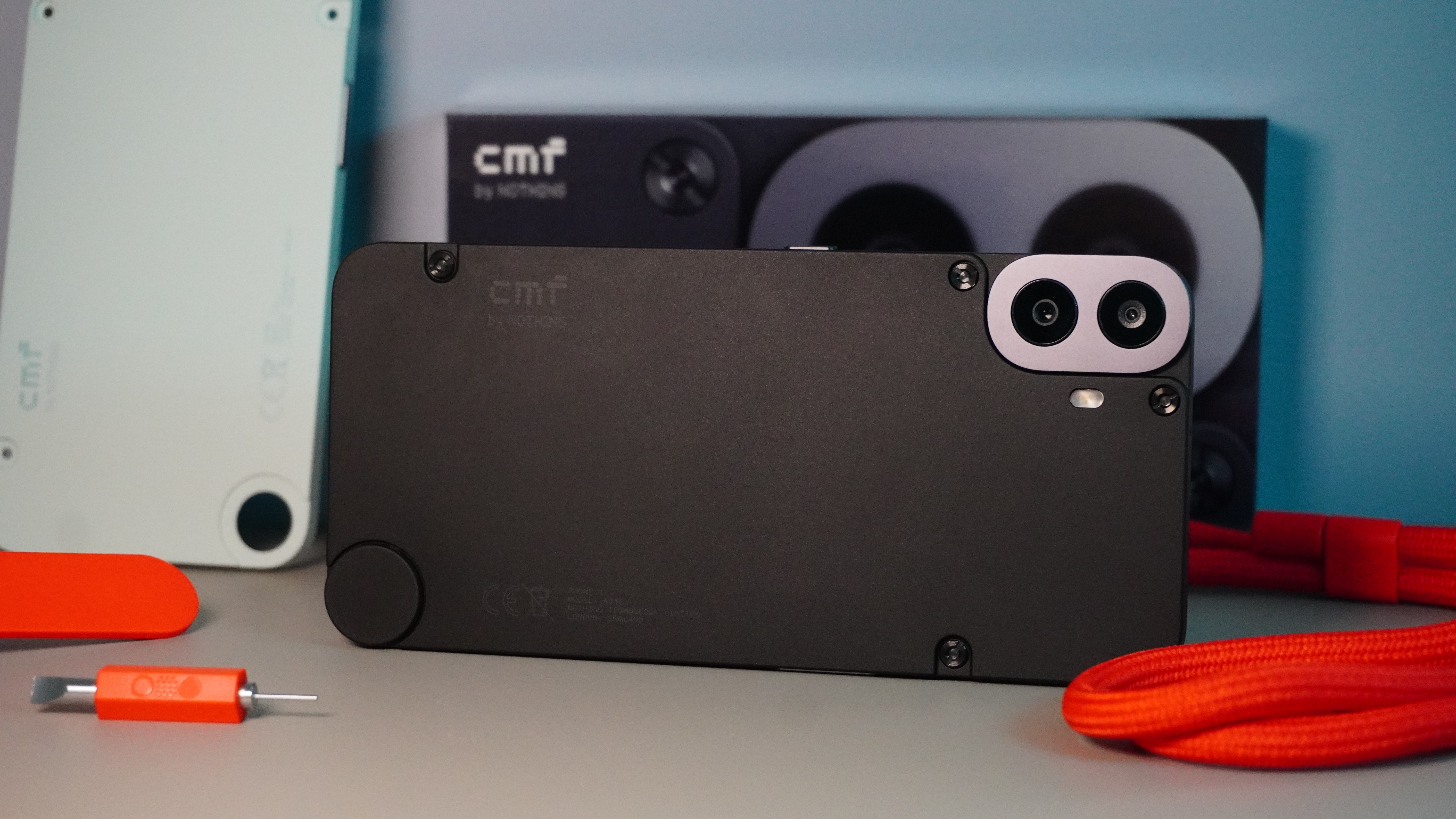 Nothing's next phone could be a budget powerhouse, thanks to this confirmed hardware detail
Nothing's next phone could be a budget powerhouse, thanks to this confirmed hardware detailOfficial details reveal more about the next phone coming from Nothing
By Chris Hall Published
-
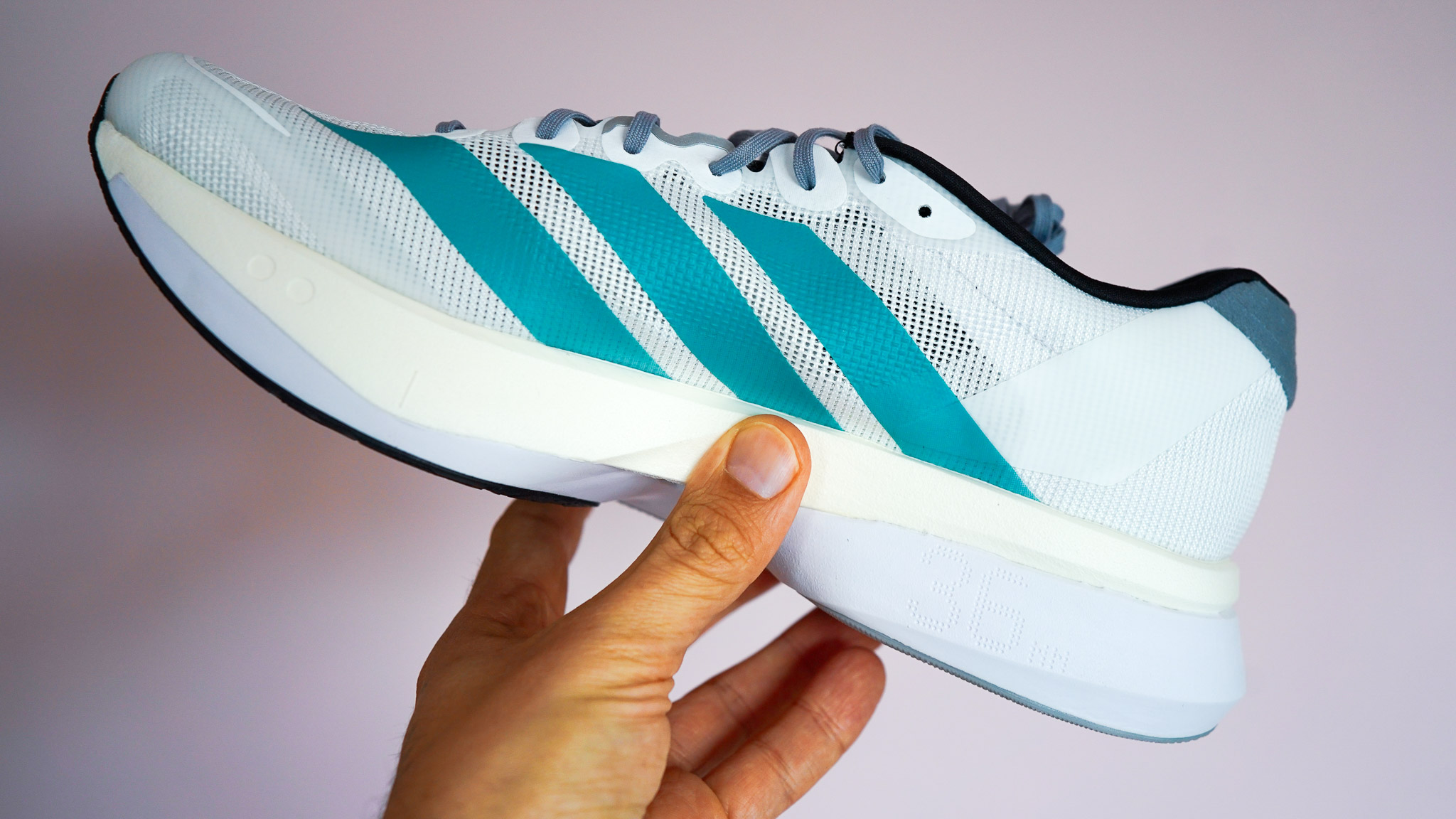 Adidas Adizero Boston 13 is softer, faster, and finally feels like a proper trainer
Adidas Adizero Boston 13 is softer, faster, and finally feels like a proper trainerThe brand quietly fixed everything runners didn’t love about the Boston 12
By Matt Kollat Published